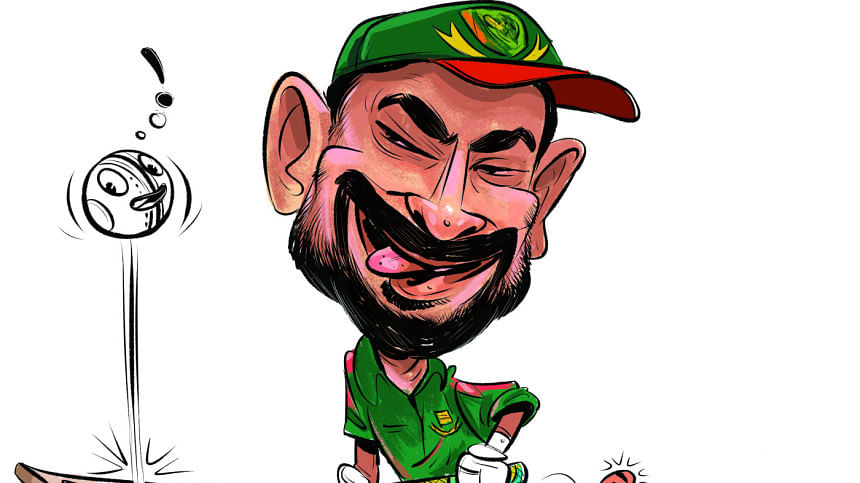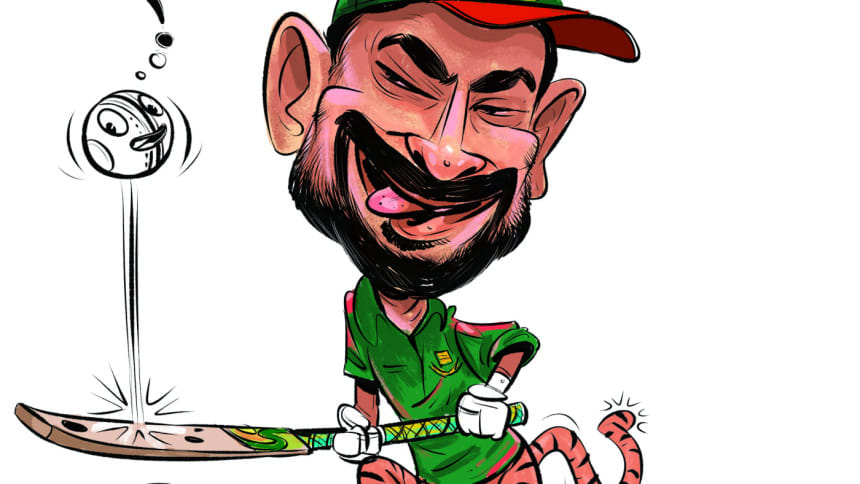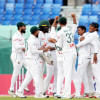Bangladesh's crises go beyond the scoreboard

Learning from mistakes is typically a sign of growth, even admirable. But when Bangladesh captain Liton Das leaned on that familiar line after his team's 2-1 T20I series defeat to the UAE -- a result that marked a historic low -- the words felt more like a reflex than reflection.
Although the message might seem reasonable on its own, coming from a team that has stumbled over the same hurdles time and again, repeating such lines without real change only deepens the frustration.
In less than a month, Bangladesh cricket suffered two blows that have shaken their foundation. First, they lost a home Test match to Zimbabwe for the first time in over six years -- a team traditionally considered beatable in subcontinental conditions. Then came the unthinkable: a series loss to UAE, a side ranked six places below them in T20I standings and with no prior series win against Bangladesh.

Short-lived highs and scattered tournament flashes have long papered over the cracks -- but Wednesday's result tore through the facade. Former captains Habibul Bashar, Minhajul Abedin Nannu, and Khaled Mashud Pilot didn't mince words: this isn't just a passing stumble. It's a full-blown crisis in Bangladesh cricket.
"There's no excuse for such defeat," Bashar told The Daily Star yesterday. "It's pathetic and shocking. UAE played like favourites in all three matches. Even the one we won, we were lucky. This can't be explained away."
Bashar demanded accountability. "You need to identify how you can lose a series to a team like UAE. The responsible authority must come up with an explanation."
The panic isn't unfounded. Bangladesh cricket, once a promising force in the 50-over format, has lost its grip. A decade ago, they were giant killers in ICC tournaments. Now, they sit at number 10 in ODI rankings, plagued by inconsistency, incoherent planning, and declining public interest.
Former chief selector Minhajul pointed to strategic confusion and poor planning as the main reasons behind the nosedive. "We need to evaluate our long-term plan and see whether our strategies are even working," he said. "Selection, format specialisation, team management -- everything needs a rethink."
While he urged patience in not judging the team based on just one or two bad series, he admitted that things aren't heading in the right direction. "The cricketing ecosystem isn't in good shape. It's not about off-field distractions; it's the lack of clarity and direction on the field."
Pilot believes the rot begins at the roots -- the domestic structure. "It's not a sudden collapse," he said. "Our domestic culture has deteriorated, and that shows in our international results. We simply don't have enough quality players coming through."
Pilot, known for his sharp assessments, was blunt in his warning. "This should be a wake-up call. We are losing to small teams because there is no professional attitude -- neither from the players nor from the management. The system is failing."
Indeed, while cricket is a game of glorious uncertainties, repeated failures against teams with far fewer resources hint at something systemic.
Whether this series defeat will serve as a wake-up call or fade into another chapter of unmet potential depends entirely on how swiftly and seriously the board, team management, and players respond.
Whether this series defeat jolts the system or slips quietly into the growing pile of misfiring rests on one factor -- the urgency and intent with which the board, team management, and players choose to act.

 For all latest news, follow The Daily Star's Google News channel.
For all latest news, follow The Daily Star's Google News channel. 









Comments